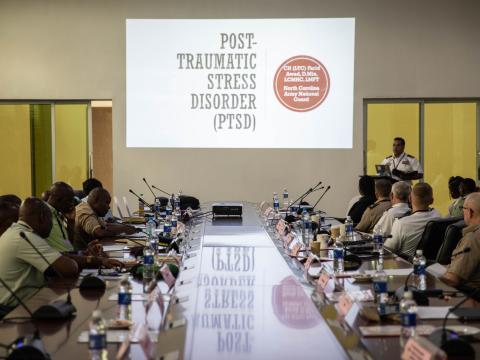Confronting Adversaries Now Saves Resources
If the People’s Republic of China's advantages over the U.S. in key areas continue to grow, the cost of catching up may be untenable, a U.S. Marine general warned.
“Our sea services have reached a point in their readiness and capacity that is no longer acceptable … we need to reprioritize and accelerate resources to meet services’ needs to preserve our national interests,” said Gen. Christopher Mahoney, assistant commandant of the Marine Corps.
The general stressed that shipbuilding is one of the areas where the PRC’s advantage is most visible and it is not only affecting quantity, but also the quality of vessels operating.
“The nation's inadequate shipbuilding capacity, and limited maintenance and repair infrastructure, continue to negatively affect naval readiness,” Gen. Mahoney said at the WEST 2024 conference on Thursday.
The assistant commandant analyzed that U.S.-led sea power is the main driver of economic growth for all countries and keeping sea lanes open fosters trade and peace.
“To preserve our peace and prosperity, we need to revive a serious national dialogue,” he said.
In terms of costs to the U.S., Gen. Mahoney stressed the value of deterrence in the face of malicious actors that directly challenge freedom of navigation, like the Houthis in the Red Sea, or support those who do.
“The price of deterrence, as dear as it might be, is minuscule compared to the price of fighting a high-end fight that—in my mind—would metastasize almost immediately, globally,” he said.

Our sea services have reached a point in their readiness and capacity that is no longer acceptable.
The Marine Corps’ main area of forward operation in Asia puts the service close to allies and partners in the region.
“The urgent need for robust U.S. Naval presence in the region is underscored by the history and interrelationships of our allies and partners,” Gen. Mahoney said.
“To 2022 national defense strategy rightly identifies our strong network of allies and partners as a center of gravity,” the general told the audience.
Still, the alliance with Asian partners lacks the level of cooperation that exisits in other parts of the world.
“While we have relationships with many nations across [the Indo-Pacific], we lack a critical underlying alliance that provides assurance security in the region the way NATO is designed to do for its member states in Europe,” Gen. Mahoney said.
AFCEA co-hosted WEST 2024 with the U.S. Naval Institute.




